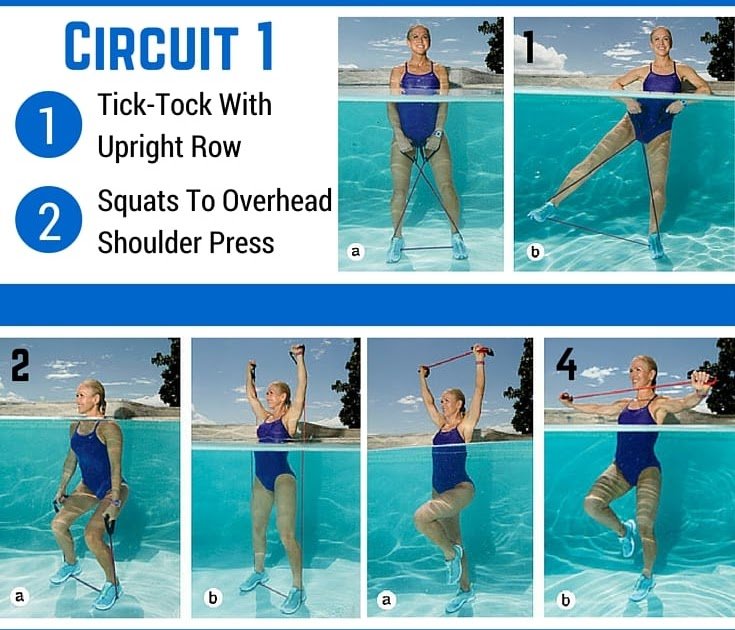What To Do If You Experience An Exercise
Dr.Pennington emphasizes the importance of having an action plan in place shouldyou enter the danger zone. Coughing during or after exercise is one sign of anexercise-induced asthma attack.
Othersymptoms include wheezing, shortness of breath and a feeling of tightness inthe chest. If you experience one or more of these signs, Dr. Pennington recommendsfollowing these steps to stay safe:
Tips For Kids With Exercise
For the most part, kids with exercise-induced asthma can do anything their peers can do. But be sure to follow the suggestions given by your child’s doctor.
Here are some tips for kids and teens:
- If symptoms start, don’t exercise until they stop.
- Warm up before exercise to prevent chest tightening.
- Take quick-relief medicine as close to the start of exercise as possible.
- Breathe through the nose during exercise.
- Take brief rests during exercise and use quick-relief medicine, as prescribed, if symptoms start.
- Cool down after exercise to help slow the change of air temperature in the lungs.
It’s also best not to exercise outside during very cold weather. If your child plays outside when it’s cold, wearing a ski mask or a scarf over the mouth and nose should help.
If air pollution or pollen are triggers, your child may want to exercise indoors when air quality is poor or pollen counts are high. And kids shouldn’t exercise when they have a cold or other upper respiratory infection.
Kids should always have access to their quick-relief medicine. Keep extras on hand and be sure to check all supplies so your child isn’t carrying an empty inhaler.
How To Breathe When Running
You are probably wondering if there is a special way to breathe while running with asthma. Well, according to experts at Asthma MD, you should focus on breathing deep in the stomach. The right and most effective breathing should come from the diaphragm and not the chest.
If you breathe through the chest this can sometimes cause hiccups, which are no fun running with.
To try this, pay attention to how you breathe just before you fall asleep. The shoulders do not rise and the stomach bulges out when you breathe in deeply. This is the same way you should breathe when running. You can put your hand on your stomach, it will help you focus.
Pursed lip breathing on the other hand helps to prevent chest pains as it regulates your breathing. I breakdown several other breathing techniques and strategies here.
Recommended Reading: Army And Asthma
Is Running Good For Asthma
Studies reveal that asthma can be reduced slowly by practicing regular exercises, as it helps to strengthen your immune system. But for an asthmatic, not all the exercises are useful in this regard.
And for this reason, you need to visit your doctor to collect the list of exercises that can efficiently handle your asthma symptoms.
Although doctors recommend asthma patients to get indulged in regular exercises like running, it is not the best option for you especially when you get frequent asthma attacks after running.
Well, this does not mean that you should not/can not benefit from running and exercising just because you are suffering from asthma.
You can either try running softly for few minutes daily OR if you cannot run and exercise, you can try various other activities which are not so intense.
Is Jogging Good For Asthma

With a plan for managing symptoms, kids who have asthma can fully participate in track & field. In fact, there is a growing body of anecdotal evidence that participation in activities like track, rather than being harmful, is actually beneficial.
According to Dr. Mark Scarupa of the Institute for Allergy and Asthma in Chevy Chase, Maryland, track, and other aerobic activities, improves cardio-pulmonary fitness which is extremely desirable for asthmatics. Furthermore, he adds, there is a direct link to obesity and worsening asthma. So track and other activities that help a child stay fit and maintain a healthy weight should be encouraged.
Here are the essentials for successfully managing asthma and track & field competitions.
- Determine whether the child is healthy enough to take part
- Explain how to monitor the child to ensure that she is tolerating the training and competitions well
- Help the parent to know when the child needs to take a break or adjust medication to manage symptoms
- Collaborate on an action plan to manage the asthma and
- Establish regular follow-up visits to make sure that the asthma continues to be under control.
You May Like: What Happens If You Smoke Weed With Asthma
Make Sure It’s Asthma
Just because you wheeze or cough doesn’t mean you have asthma. “There are several things that can mimic asthma, the most common being vocal-cord dysfunction,” says Roberts. “I see a lot of that, especially in younger runners who are assumed to have asthma because they have a wheezing-like sound.” See your physician for a diagnosis to ensure proper treatment.
You Cant Maintain Your Normal Exercise Routine
You may notice that youre unable to keep up with any type of physical activity if your severe asthma symptoms are getting worse.
Talk to your doctor if you find yourself coughing or having to use your inhaler more often at the gym or during activities like jogging or playing sports. If your chest tightens more often during everyday physical activities like climbing the stairs or walking around the block, you may need to change your medications to get your symptoms under control.
Also Check: Can You Be In The Air Force With Asthma
Easy Tips To Enjoy Running With Asthma
I can remember the first day that I had my first asthma attack like it was yesterday. I was in
I can remember the first day that I had my first asthma attack like it was yesterday. I was in the third grade and I was playing kickball at recess. I kicked the ball and ran as fast as I could. Once I reached home base I tried to catch my breath, but I couldnt. When I try to describe an asthma attack to people who arent asthmatics, I tell them to take a deep breath, and then try and take five more without letting any air out. Its as if your airways have constricted to the size of a pinhole, and it can be terrifying.
After that day at recess, I was diagnosed with exercise-induced asthma. This meant that any physical activity could bring on another attack. So, I now carry an inhaler with me at all times.
Because my asthma was exercise-induced, I thought that meant that most physical activity, especially running, was out of the question for me. Thankfully, however, Ive learned how to manage my asthma and Ive discovered a few ways to help me enjoy running:
Yoga Breathing Exercises For Asthma
Yoga breathing or yogasana for asthma stems from the practice of yoga. As a form of exercise, yoga incorporates the need to breathe steadily in a controlled fashion whilst moving, stretching and balancing.
Some studies have shown encouraging results and an improvement in asthma symptoms after yoga breathing techniques have been practised. Yoga is also good for helping to relieve stress and, as stress can be a trigger for asthma, it may be good to try both yoga breathing exercises and yoga movements.
Recommended Reading: Can You Join The Army If You Have Asthma
What To Do When Asthma Stops You Sleeping
- If you have asthma symptoms, sit up and take your reliever inhaler as prescribed.
- Always make sure your inhaler is beside your bed before you go to sleep, so you dont have to search for it in the middle of the night.
- Give yourself a bit of time to check your reliever medicine has dealt with your symptoms before you go back to sleep, says Dr Andy Whittamore. This is better than falling asleep straight away only to wake up soon after with asthma symptoms because your reliever didnt help enough.
- Some people find propping themselves up with extra pillows helps as it keeps the airways open.
Your Level Of Asthma Control
If your asthma is well controlled, your airways will be less sensitive to exercise. Youll find exercise is less of a trigger for you.If you find exercise makes your breathing a lot worse, it could be a sign that your asthma is not controlled. Tell your doctor about your symptoms and ask how to get your asthma under control.If your asthma is usually well-controlled, but youve got a cold, flu, or other respiratory infection, you could be more likely to get symptoms while exercising. If youve been sick, pay careful attention to your symptoms. It may be a good idea to exercise less while youre getting over your chest infection.
Also Check: Should You Use A Humidifier If You Have Asthma
Choose The Right Weather And Season
In general, its the best run in humid and warm conditions.
Pay attention during spring and fall.
Some of you might have pollen or grass sensitivity that triggers asthma.
If you have to run outside in the cold, put on a scarf or facemask to cover your mouth and nose this helps warm the air up before it reaches your lungs, preventing it from irritating your airways.
Or, jump on the treadmillindoor running is less like to induce an asthma attack.
Tips For Running With Asthma

Don’t Miss: What Drugs Are Used To Counteract An Asthmatic Attack
How Can I Manage And Treat My Eib
With proper management, you can enjoy exercise and achieve your full potential. Proper management requires that you:
- Take steps to prevent symptoms
- Take medicine before exercising
- Do a proper warm up for 6 to 10 minutes before periods of exercise or vigorous activity
- Carefully watch your respiratory status before, during and after exercise
Children With EIB Inform teachers and coaches if you have a child with EIB. Kids with EIB should be able to take part in activities they just may need medication before an activity.
Athletes With EIB If you are an athlete, disclose your medicines and adhere to standards set by the U.S. Olympic Committee. Request a list of approved and prohibited medications from the Committee hotline at 1-800-233-0393.
Health And Safety Suggestions With Running And Jogging
Suggestions include:
- Make sure you eat a healthy, well-balanced diet.
- Avoid eating directly before going for a run.
- Avoid running during the hottest part of the day in summer.
- Drink plenty of water before, during and after your run.
- Take your mobile phone with you.
- If using an iPod or headset, do not have the music too loud stay alert and aware.
- Wear reflective materials if you’re running in the early morning or at night.
- Tell someone where you plan to run and when you think you’ll be back.
- Choose well-lit, populated routes and avoid dangerous and isolated areas.
- If you injure yourself while running, stop immediately. Seek medical advice.
Read Also: Is Asthma Considered A Lung Disease
Exercise Outside With Asthma
Here are some other ways to play it smart and prevent exercise-inducedasthma:
Check weather alerts. For some patients, extreme temperatures hot or cold make it hard to breathe, Dr. Pennington explains. And sometimes the quick change in temperature when you leave air conditioning to go out in the heat makes breathing more difficult.
Hot, humid weather can also increase the amount of pollution in the air, which can exacerbate asthma symptoms. So watch the forecast and air quality index when planning outdoor exercise.
Peruse pollen counts.Thereis such a thing as allergy-induced asthma, too. So stay inside if you haveseasonal allergies and the pollen count is high.
Dont forget your gear. Your rescue inhaler isuseless sitting at home while youre out running a five-mile race, Dr.Pennington says. Make sure you have it so you can use it if needed.
She advisesusing your rescue inhaler 15 minutes before starting an activity. If you feelshort of breath while exercising, take a few puffs to get relief within 10 to15 minutes.
And if youve been prescribed a controller inhaler, make sure youre using it as directed, she stresses. It will help decrease the inflammation in your lungs that causes symptoms.
Take it slow. Dont start running or ridingyour bike at full blast. Warmupfirst. Take the time to adjust your body to hot temperatures, especially if youare coming from an air-conditioned environment.
Asthma In Runners How To Safely Run With Asthma
Its no secret that running with asthma can be tricky.
Many runners with asthma may experience wheezing, coughing, difficultly breathing, or chest tightness both during and after running.
In fact, any shortness of breath or wheezing triggers fears that an attack could hit.
Thats why many asthmatic people try to avoid running.
But, in actuality, cardio workouts, like running, may help you improve breathing control and minimize the effects of asthma, research shows.
In todays post, Ill explain what exercise-induced asthma is all about as well as how to manage and prevent it while running.
Sounds great?
Lets lace up and dig in.
Lets get started.
Note Just because you cough or have difficulty breathing while running doesnt mean you have an asthma attack.
Theres a host of conditions that can mimic asthma, such as vocal cord dysfunction or different kind of allergies.
Consult your doctor for a full diagnosis.
Also, get the green light from your doctor before you start running or make any drastic exercise change.
Also Check: Long Term Effects Of Albuterol Inhaler
Being Diagnosed With Asthma At 54 Was A Huge Relief For Karen Ward
The nurse at my health check wasnt the first to ask How can you POSSIBLY run a marathon when you have asthma? but hers was the comment that upset me the most. Thankfully my regular asthma nurse is a runner, and much more positive she told me: If Paula Radcliffe and Jo Pavey can do it, so can you.
Follow An Asthma Action Plan
You can also talk to your doctor about an action plan that helps you recognize the early signs of an impending asthma attack and signals that may help guide when you take a run, and when you don’t.
These plans are divided into three sections: green , yellow , and red . Information on symptoms to look out for and what to do about them in each situation is included.
Also Check: Can Allergies Cause Asthma Attacks
Does Honey Treatment Help In Improving Sleep With Asthma
Coughing is one of the symptoms of nocturnal asthma, which can be reduced by taking two teaspoons of honey with warm water or cinnamon before you go to bed. Honey can increase saliva production, which can ease your cough by lubricating your airways and reduce inflammation in the bronchial tubes that causes breathing difficulty.
Read Also: How Does Weed Help Asthma
Sports With Short Bursts Of Activity

The following sports are appropriate for people with asthma. These activities involve intermittent breaks, which are gentler on the lungs.
- baseball
Sometimes, it can be difficult to tell if your symptoms are caused by asthma or just being out of shape. In both cases, the usual symptoms include:
- shortness of breath
- sore throat
- upset stomach
Typically, these symptoms start after 5 to 20 minutes of working out. They might continue for 10 to 15 minutes after you stop exercising.
Its common to have these symptoms if youre out of shape. If you have EIB or asthma, the symptoms will be significantly more severe and will likely include coughing and wheezing.
Another sign of EIB is excess mucus production. This occurs due to airway inflammation and usually wont happen because of poor fitness condition.
You May Like: What Can Cause Asthma Exacerbation
How To Help A Runner Having An Asthma Attack
- Crack open a can of calm.
- Ask me if I have my inhaler, and help me get it if I do.
- Ask me if I know what triggered the attack. Remove that trigger if you can.
- Tell me to purse my lips like Im playing the trumpet and breathe that way.
- Make sure Im hydrated to keep the mucus loose.
- Remind me not to take any ibuprofen or Tylenol or other non-steroidal anti-inflammatories.
- Dont let me keep running until I feel better.
- Take me to get medical attention if what usually makes things better isnt working.
Asthmatic sisters and brothers, Id love to hear your storiesCinderella or otherwise. Id like to include some of your experiences running with asthma in Decembers Part 2 of this article. Please comment below.
Related articles:
